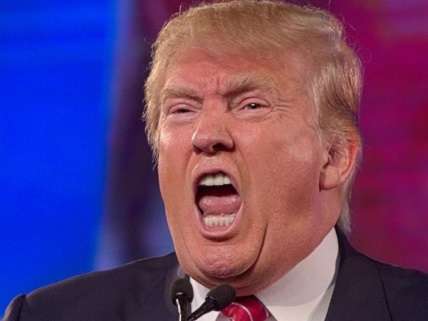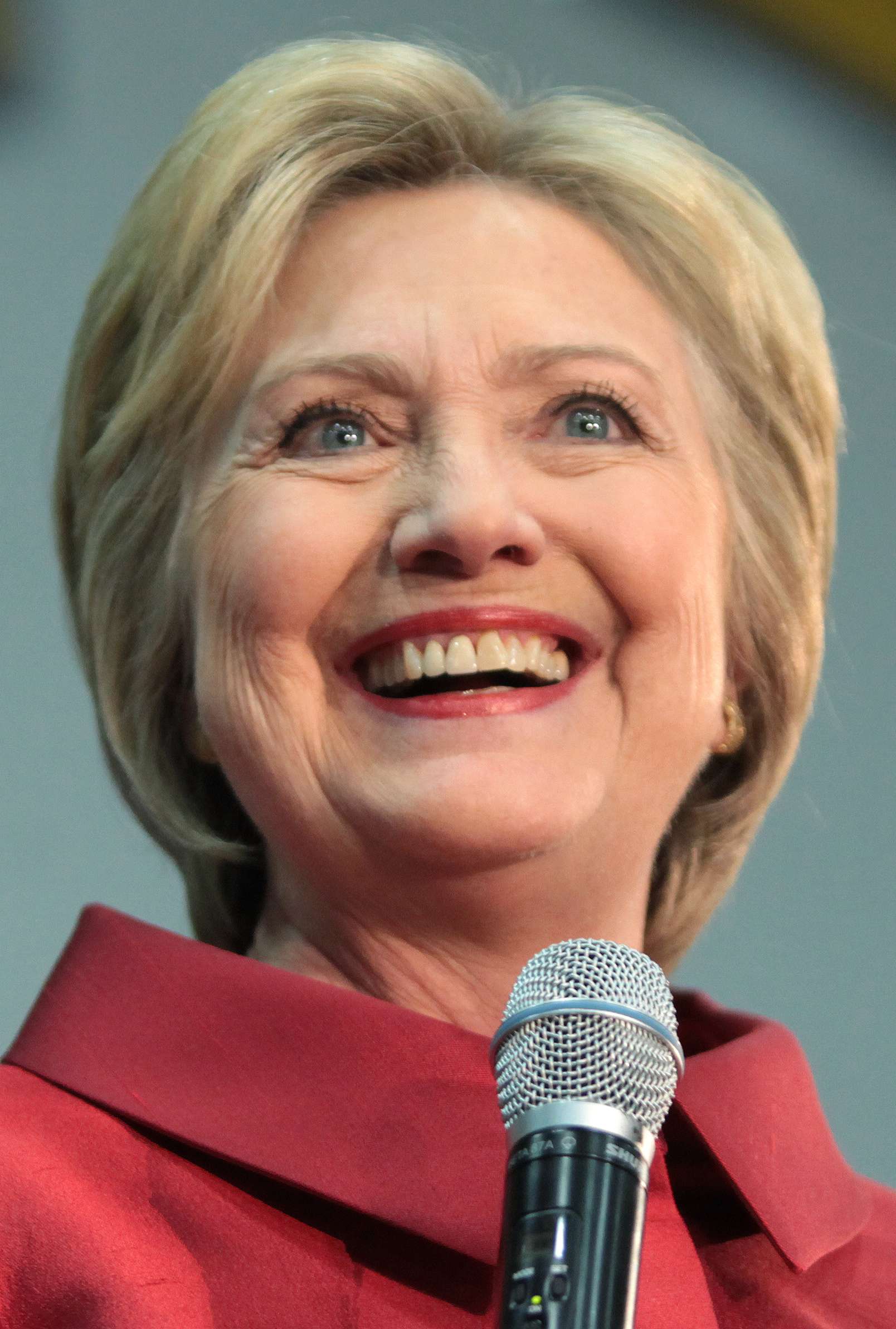Of Course Millennials Dislike Donald Trump and Hillary Clinton
The major-party candidates are about preserving the past, not creating a bold new future.

"Millennials don't like Donald Trump or Hillary Clinton," announces Fortune magazine in what is surely one of the least controversial statements to date during the 2016 election season. Voters under 35 years old, write brothers David Cahn and Jack Cahn, "gave Clinton less than 30% of their votes in key primaries and nearly precipitated her defeat nationwide. Trump won 20%-30% of millennial voters in key GOP primaries, generally behind both Cruz and Rubio. Young voters have already delivered both candidates an unambiguous rebuke."
It's not that millennials can't rally behind candidates. As the Cahns note, they voted in large numbers for Ted Cruz and Marco Rubio during Republican primaries and for Bernie Sanders in Democratic ones. In the general election, Trump is doing worse among millennials—he's pulling just 18 percent in a recent USA Today/Rock the Vote survey—than Richard Nixon did in 1972 (Tricky Dick got one-third of the youth vote in the first election in which the voting age was lowered to 18). Hillary Clinton is doing better among millennials, according to USA Today/Rock The Vote, but even 50 percent share is way, way down from Barack Obama's percentages in 2008 and 2012. And, more important, "an overwhelming majority — 68 percent — said they are dissatisfied with the choice of Clinton or Trump," according to The Washington Post.
The Cahn brothers are undergraduates at Trump's alma mater, University of Pennsylvania and authors of the new book, When Millennials Rule: The Reshaping of America. They argue that the billionaire developer loses millennials due to his values:
Whereas millennials tend to identify as optimistic, tolerant of diversity and authentic, Trump vilifies undocumented immigrants, has threatened to ban Muslims from immigrating to the United States, and frequently taunts women. Trump's flagrant insults and racism directed toward minority groups makes him an anathema to young voters.
They are less clear on why millennials are turned off by Clinton. "Team Hillary lacks the gleam or enthusiasm of Obama and Sanders," they note, even as they say her embrace of forgiving student-loan debt and gun control resonate well with younger voters (the latter point seems a bit of a stretch; the 2014 Reason-Rupe Poll found that just 1 percent of millennials mentioned "gun violence/gun control" as important).

Millennials, the Cahns argue, care most about the economy, a finding that's consistent with other polls of millennials (including Reason's). Other than vague promises to create jobs and improve the economy—mostly by reducing trade and punishing companies that "export" jobs—neither Trump nor Clinton has laid out anything approaching specific plans that would goose the economy for millennials. The Cahns are right that Trump's nativist, anti-immigrant appeals mean that millennials stop listening to him. For her part, Hillary Clinton is willing to pander to younger voters by promising debt forgiveness, but she embodies the out-of-touch grandmother who hasn't driven a car in 20-plus years, has no understanding of contemporary popular culture and technology, and openly loathes the sharing economy. She may not actually be any more bellicose than Obama, but at least he campaigned as a peace candidate. Her basic pitch during the Bernie Sanders' insurgency was that the Vermont senator was a crazy dreamer while she was a pragmatic progressive "who could get things done." That's not the best way to rally youth votes and neither is demonizing entrepreneurship and the profit motive, which millennials actually really kind of dig. The Reason-Rupe survey found, for instance, that millennials preferred a "free-market economy" over a "government-managed economy" by a 2-to-1 margin (64 percent to 32 percent). To the extent that Clinton comes off the big regulator she says she will be, she's not helping herself among younger Americans.

As the largest cohort in today's America, millennials will not only decide many future elections, they will be decide 2016. The Cahns note that if Mitt Romney, nobody's idea of an inspiring figure, especially for younger voters, had pulled half of millennials in Pennsylvania, Ohio, and Florida, he'd have beaten Obama four years ago. As it was, Romney beat Obama by 2 million votes with voters over 30 but lost by 5 million votes with 18-29 year-olds—and that was despite fewer millennials turning out in 2012 than 2008 and their huge cooling toward Obama. In 2008, Obama won millennials by 34 percentage points but by 2012, his advantage was down to 23 percent points.
What do millennials want? A 2008 study by the College Republican National Committee that mixed polling and focus groups found that millennials have left behind most culture-war and Cold War baggage of the baby boom and Gen X generations. Even religious millennials are generally pro-marriage equality and aren't motivated by abortion politics (even as they are more pro-life than Gen Xers and boomers). They are generally comfortable with a multi-ethnic society and assume pot will be treated similar to beer, wine, and alcohol. But they are legitimately interested in reducing the size, scope, and spending of government.
Fully 90 percent agree that Social Security and Medicare need to be reformed now, 82 percent are ready to "make tough choices about cutting government spending, even on some programs some people really like," and 72 percent want to cut the size of government "because it is simply too big." Only 17 percent want to increase spending on defense.
Given that both Donald Trump and Hillary Clinton are proposing massive increases in federal spending, it's not surprising, then, that millennials are relatively cool toward such candidates and the parties they represent. And it also helps explain why Libertarian Gary Johnson, the former two-term governor of New Mexico whose campaign slogan is "Uber everything!" is picking up youth votes. On social and economic issues, Johnson seems most in step with millennials, though there's no question that as a third-party candidate, he's not necessarily on their radar. Yet it's equally clear that even Clinton, who starts with the advantage of following in Obama's footsteps, isn't capable of sealing any deal with younger voters. Appealing to the most immediate concerns of twentysomethings—hey, I'll cut your student loans!—will only get you so far, especially when it's clear that such actions, especially when coupled with massive increases in entitlement spending for older, wealthier Americans—more Social Security! Medicare at 55!—will do nothing to grow the size of an economic pie that is getting cut into thinner and thinner slices for more and more people.


Show Comments (19)